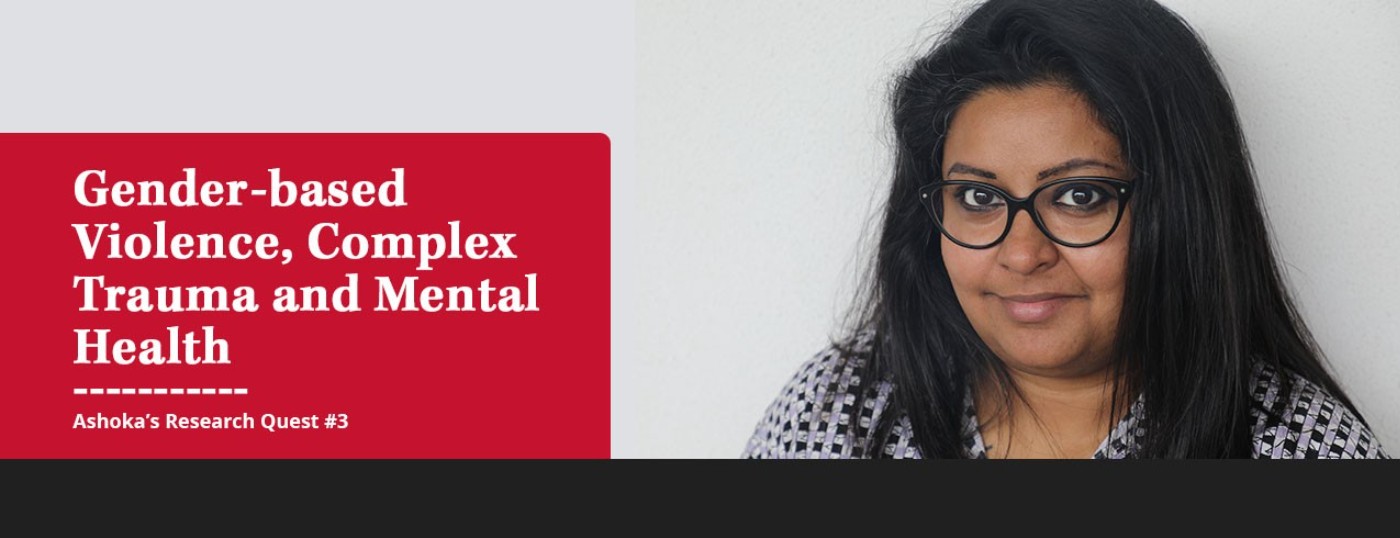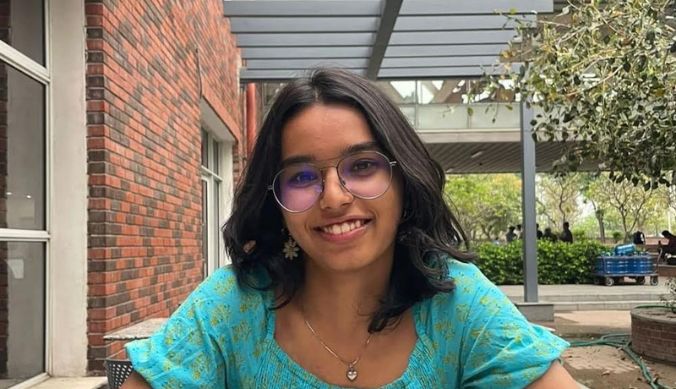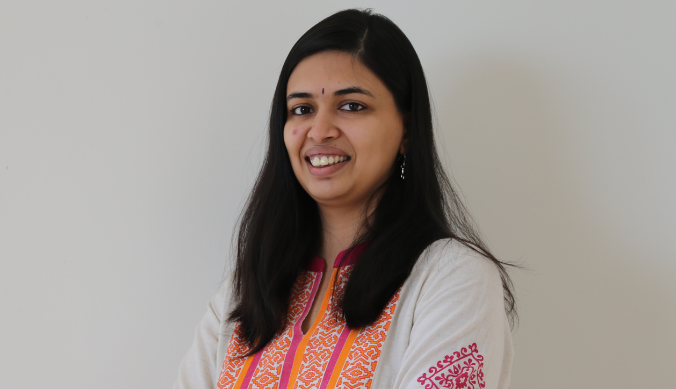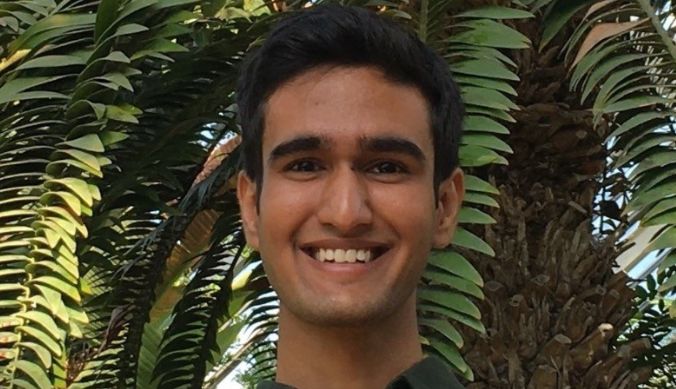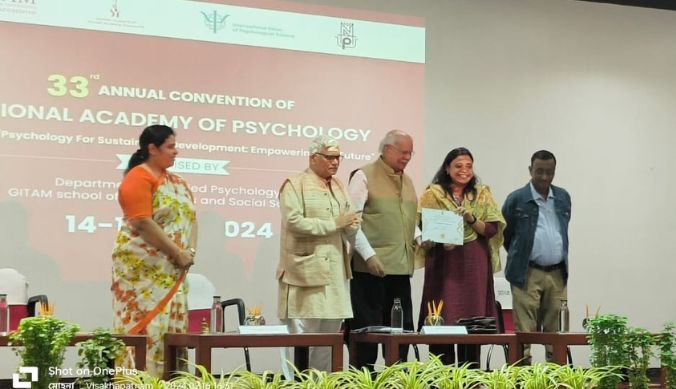Ashoka’s Research Quest | Gender-based Violence, Complex Trauma and Mental Health
Assistant Professor Simantini Ghosh talks about how gender-based violence like domestic violence and Intimate Partner Violence (IPV) impact women and their mental health.

Office of PR & Communications
7 January, 2021 | 10 min readSometimes violence is not overt, it’s not entirely physical or sexual, but can be psychological.
Simantini Ghosh, Assistant Professor of Psychology at Ashoka works at the intersections of gender-based violence and women’s mental health and well-being. She has interest in looking at systematic violence against women. Gender-based violence like domestic violence and Intimate Partner Violence (IPV), complex trauma and Post traumatic Stress Disorder (PTSD) and associated cognitive and affective issues are the areas she mostly focuses on.
Talking about complex trauma, Simantini said, “We process trauma in a very different way than we process normal thought. The encoding of traumatic memory for example uses somewhat different mechanisms in the brain. Especially in case of PTSD and what we recognise today as more complex PTSD not only involves the classical symptom metrology of PTSD which involves flashbacks re-experiencing trauma avoidant behaviour, so on and so forth. But in to all of this, the very sense of self, the self-perception gets warped.” The survivors of complex trauma or anyone who has experienced trauma feel that they have no control over their own lives and that they cannot escape from it no matter what.
“The chronicity is what sets complex trauma apart from an acute exposure to a traumatic incident,” said Simantini.
The overarching question that her research asks – Can we use the complex trauma theory to analyse violence against women in India?
Why does this research matter? This is an integrative framework that allows for sequential addressing for all psychological dysfunction in survivors and accounts for multiple etiologies. This research asks several critical questions – What are relationship profiles for ever-married/ever partnered women in India? Incidence and prevalence of abusive behaviour in relationships. Psychological effects of abuse: how does it manifest in Indian women?
Simantini continued, “When we experience trauma, a lot of brain processes which are involved in sensing these cognitive pieces of information are shut down, so they don’t work properly. And traumatic memories so they get coded in terms of emotional violence. So, whatever the emotional part of our brain is an evolutionarily primitive part that cannot shut down even if the more evolutionary modern frontal part of the brain shuts down and prevents encoding of these really important who, when, what, where these sort of cognitive information.”
However, your body actually remembers the trauma in a lot of different ways.
For survivors of chronically abusive situations and trauma, they revictimise themselves. And the cycle often continues.
Simantini said, “One is people who have just grown up witnessing domestic violence in their households, and the other, which is oftentimes much more serious, are unfortunately children who have witnessed violence on themselves as a child. And childhood abuse and neglect are frightfully common in our country. If you grew up in an intergenerationally violent household, there are measurable changes in your relationship patterns.” And how violence transmits and sustains through generations is what she is looking at.
Simantini also discards the myth that gender-based violence only happens in lower-income families.
“In a lot of situations, people have asked me why I engage with this research. It certainly is not easy. It has a lot of vicarious trauma and my only answer is that, when we go out in the field and a lot of times when they are under so much psychological stress their self-perception has changed and they often feel like they don’t matter. They are completely ineffective as people. At that time I think one of the main reasons that they feel like they have no voice, they feel like no matter what they do, no matter how much they try, they are not going to matter anyway. And I think we have a duty towards making the general public more cognisant of how deeply gendered the relationships are in our society. And that has a very real-life impact on people who suffer because of it. And that’s why I do this, that’s why I engage with it,” concluded Simantini.
Simantini Ghosh did her Bachelor’s in Physiology (Hons) from Presidency College, Calcutta. She obtained her Master’s’ degree in Biochemistry from the University of Calcutta and her PhD in Neurobiology and Anatomy from the University of Rochester School of Medicine and Dentistry in Rochester, New York. As a postdoctoral research scholar in Neurology in Washington School of Medicine in St. Louis, Missouri, she worked on an NIH-funded project to study behavioural effects of repetitive concussive traumatic brain injury and Alzheimer’s disease brain-derived fractions in rodents. Her work in psychology however, specifically focuses on understanding complex trauma is survivors of domestic violence and intimate partner violence (DV/IPV). She actively works in villages of Haryana, both in completely rural as well as pan-urban demographics with women in abusive relationships and patterns of behavior typically displayed by survivors and the mental health problems they encounter.
Understand more about her research here.
____________
Ashoka’s Research Quest Campaign
Ashoka Research Quest is a newly launched campaign that showcases the in-depth research that Ashoka University offers. This will be a recurring campaign. Get an insight into various subjects through a detailed conversation with the faculty.
So, let’s talk about research!





